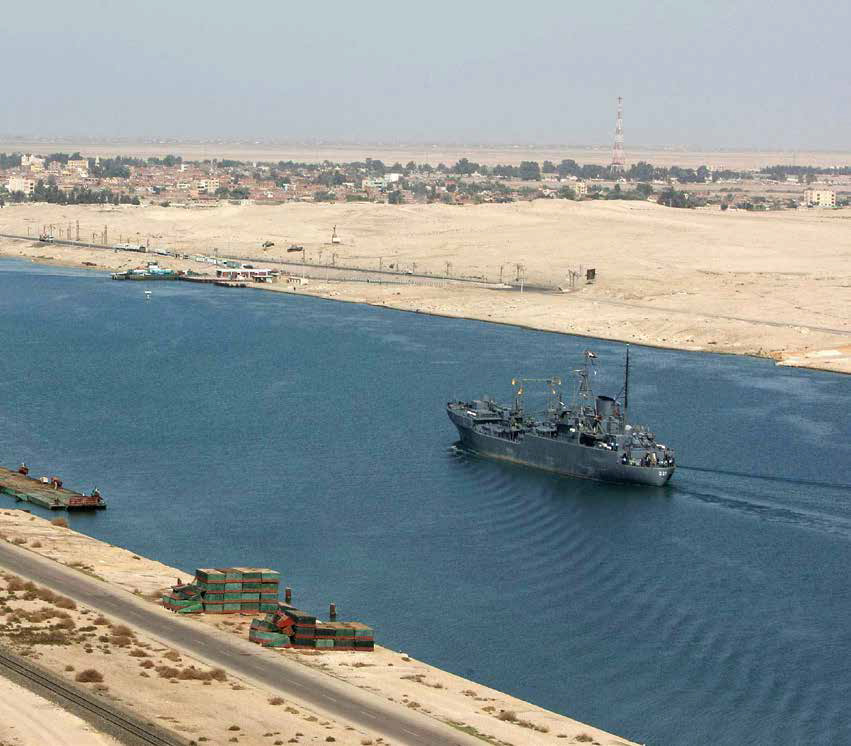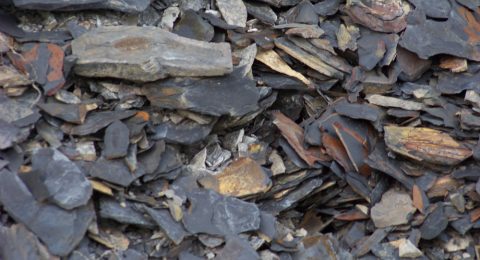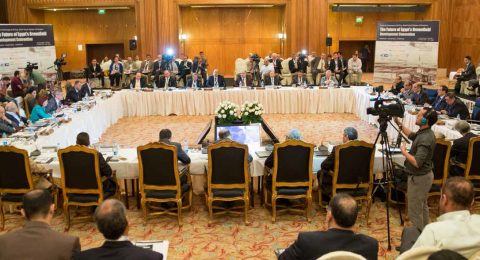Early next year, Egypt’s government aims to present a plan to investors for broadening the Suez Canal and transforming its banks into a logistic and industrial hub, which could create thousands of jobs. Egypt Oil & Gas Newspaper asked experts to comment on the plan’s chances for success amid security threats and growing competition to the canal.
Over half a billion tons of goods pass the Suez Canal every year. This artificial 193-kilometer waterway has become vital for international trade, notably transport of oil and its derivatives, as it enables ships to travel between Europe and Asia without navigating around Africa. It is equally vital for Egypt´s government, being its main revenue source alongside oil, tourism, and remittances according to ANSAmed.
Since its opening in 1869, the canal has been developed in several stages to accommodate larger vessels. For example, its water depth and width have more than doubled, reaching 24 meters and over 200 meters respectively by the end of the latest development stage in 2010, informs the Suez Canal Authority (SCA), owned by Egypt´s government.
All Egyptians Potential Shareholders
The government plans to broaden and deepen the canal further, construct dry docks for building and repairing ships on its banks, and to “transform the waterway from merely a corridor for tariffs to a logistics area providing transportation, loading, unloading, storage, lodging, and marketing services to all ships passing through, thus raising canal revenues by billions of dollars, especially in foreign currency,” spokesperson for the SCA Omar Fouad told Daily News Egypt. An economic zone will be established northwest of the Gulf of Suez to host a wide variety of industries, and fish farming will be set up along a 100-kilometer area east of the canal. The project is expected to make wide use of Egypt´s abundant renewable energy resources.
During the 2012 presidential election, the Suez Canal area development was already a major feature in the campaigns of the most prominent candidates. When Mohamed Morsi became the president, he made it a key component of his “renaissance project” for the revival of Egypt’s economy. Even following Morsi’s ouster, the Suez Canal Corridor project remains alive, although its implementation will undoubtedly be somewhat different than it had been under his rule.
According to Washington Post, Morsi´s administration appeared poised to negotiate with Qatar over the development of the canal zone. Meanwhile, many of the 14 Egyptian-foreign joint ventures eligible to bid to become the developers of the project´s master plan now have previously contracted for Saudi Arabia and UAE—allies of the current administration. Gulf Business reports that the bidders include Australia’s WorleyParsons, the American McKinsey & Co, and Japan’s Oriental Consultants. They also include the Arab Contractors owned by Egypt´s government and the Maritime Research and Consultation Center, a non-profit organization whose board of directors is chaired by the minister of transport.
After the winning consortium is announced in June, it will present a plan for the development to the government within six months, said Mahmoud Rizq, Director of the Department of Planning at the SCA. In January 2015, the government will present the plan to local and international financial institutions and companies at a conference that aims to attract funding for the project. The SCA plans to establish a company for the development of the canal, which will acquire funding though a stock market IPO, which all Egyptians can contribute to.
The government has already allocated EGP 2 billion to finance preliminary studies, infrastructure, and the development of the master plan. The World Bank has agreed to contribute with technical expertise. According to Egypt’s Prime Minister Ibrahim Mehleb, the bank´s participation “contributes to the selection of global offices with the utmost transparency and professionalism, and projects with enough details to implement them in the shortest possible time, which serves to provide thousands of jobs for young people and the development of the economy.”
Alternatives Emerging to the Canal
At the same time, there are some alternative Asia-Europe transport routes emerging – rail links developed by Israel and Russia, and waterways in the Arctic Ocean – threatening to take some traffic away from the Suez Canal. All these routes enable quicker shipping of goods compared to the canal.
Israel announced in March that with the help of the Chinese money, it would within one year start constructing a $2 billion, 300 kilometer rail freight link nicknamed Red-Med that would connect its Mediterranean and Red Sea ports. The construction is expected to take five years, reports Deutsche Welle. “The Israeli rail line is an alternative to the Suez for certain roll-on, roll-off cargo traffic,” said Dr. Paul Sullivan, Professor of Economics at the US National Defense University, explaining that the Red-Med would require extra movements for cargo at two ports: off-loading from the ships and on-loading to the rail cars on one end, and the opposite at the other. Some shippers may also avoid it because of bad relations with Israel. Besides, Israel has security issues that shippers will need to consider, added Sullivan. He pointed out that the rail link would be under Israel´s law, whereas the Suez Canal is under the protection of an international treaty – the 1888 Constantinople Convention, which states that the canal may be freely used “in time of war as in time of peace … without distinction of flag.” According to University of Oxford expert Justin Dargin, the rail link would face the risks of military conflict “from either fallout from the Arab Spring or an outbreak of violence between the Israelis and Palestinians.” On the other hand, due to such issues, Israel is very security conscious and taking strong measures to protect its infrastructure. Therefore, Jason Kuehn, Vice President at the consulting company Oliver Wyman, believes that Israel is likely to promote the rail link as a safer route compared to the Suez Canal.
Russia is investing billions of dollars in the modernization and expansion of its Trans-Siberian Railway network, which enables about three times quicker transport between Asia and Europe compared to the Suez Canal. Russia said in 2012 at a meeting of Asia-Pacific Economic Cooperation forum (APEC) that about a tenth of transit traffic between APEC and the EU could be redirected across its territory as an alternative to the Suez Canal, reports RBTH. However, as of 2013, less than 1% of all Asian freight went to Europe via Russia. To make the Trans-Siberian Railway more attractive, its infrastructure needs to be improved and Russia´s slow customs procedures quickened — and Moscow is working in this direction. Last year it opened new rail links between China and Germany, China and Poland, as well as between Russia and North Korea, reports Bloomberg. Now Russia is courting North Korea to expand the railway network across its territory to South Korea. According to Kuehn, the Trans-Siberian Railway, as well as the Trans-Asian Railway network developed under the auspices of the United Nations, are likely to attract more expensive goods and time-sensitive freight. For example, bulk fabrics tend to move by vessel, whereas finished fashion garments move by rail since it is faster. According to Kuehn, the commodities that have low value relative to their volume such as crude oil or coal are transported by vessel whenever possible.
Russia is also investing huge sums in the infrastructure of its Northern Sea Route, which is becoming increasingly attractive for transit due to the effects of climate change on its waters. 2007 was the first summer when both the Northern Sea Route and Canada’s Northwest Passage were simultaneously ice-free, informs gCaptain. By now, the annual navigation season of the Northern Sea Route already reaches four months according to Platts, and 72 ships used the route last year. However, the use of the Northern Sea Route is still relatively risky and costly because it is uncertain when the route becomes operational and free of ice each year, and even during warm months, ships often need ice-breaking escorts to pass some parts of the route, writes the Wall Street Journal. “In the long term, if the Arctic melts further and the times of the year it is open to shipping increases, its competition with the canal will increase, but it would be more via the Canadian routes than the Russian ones,” said Sullivan. According to Dargin, “The Northern Sea Route’s success will be crucially focused first and foremost upon oil and gas shipments from Arctic energy deposits.” He added that, “The Northern Sea Route could also be subject to disruption as various countries that border the region jostle for access to its potentially rich reserves of oil and natural gas. … Unless there is a negotiated settlement to the various claims, it is likely that Arctic trade lanes would be vulnerable to outbreaks of military action.”
Experts say that the Suez Canal will most likely remain the cheapest way to transport goods between Europe and Asia in the foreseeable future and alternate routes will not threaten its shipping volumes significantly. “I think that the alternatives that are currently emerging are a long way from representing a cost-effective substitute for container shipments through the Canal, which still handles roughly 8% of total global trade,” said Robert Tashima, Regional Editor at the business intelligence provider Oxford Business Group. “While the Suez Canal will definitely face competitive threats in the future with the opening up of these new projects, the Suez Canal will always be a vitally important trading nexus,” assured Dargin. According to Sullivan, the most likely replacement to the Suez Canal for some cargo would in fact be shipping completely around Africa. “The Cape route would be a popular destination in times of low bunker prices and high surplus capacity,“ noted Dargin.
Chances for Success
Dargin believes that since alternatives are emerging and Suez’s longtime competitor — the Panama Canal — is in the midst of expanding its infrastructure, it is exactly the right moment to invest in the development of this waterway so that it remains attractive. “Traffic [on the Suez Canal] in 2013 declined slightly, by about 3% in terms of ship transits, but without regular improvements, that could drop further,” cautioned Tashima.
“Allowing for greater supplementary industrial activity in the [canal] area will bring a number of benefits,” he said about the Suez Canal Corridor project. “Not only will it permit producers to participate in the processing of raw goods coming from Asia, but it will allow them to work on production of semi-finished goods as well in a cost-effective and timely manner – as opposed to sending them on to more expensive facilities in Europe to be fully processed.” He added that “it will also provide domestic manufacturers in Egypt with access to key export infrastructure – something that has been of immense benefit in other markets, such as Morocco, where the Tanger-Med [port] complex helped to jumpstart a multi-billion network of automotive and aerospace producers. Needless to say, this would also create a host of positive externalities, particularly in terms of job creation.” Dargin thinks that, “Without a doubt, the [Suez Canal Corridor] plans call for an integrated development scheme to attract investment funds from Arab, principally Gulf, and other international investors. This integrated investment scheme will have many knock-on effects through the local economy. Everything from construction, local hotels, small stores and even financial services could benefit from the influx of investment funds.”
Some are more cautious about the success of the project. “If it were possible to envisage an Egypt that was stable, democratic and thriving economically, then the project would be able to attract foreign inward investment. However that is a ´big if´,” said experts of the Channoil Consulting Limited, a company providing commercial and technical expertise in mid- and downstream oil and gas industry. They expressed doubts if the project will ever be realized. “Or if it were, it would be a huge ‘white elephant’,” the experts suggested, adding that the best thing that could happen to the canal would be privatization since as long as it is run by civil servants, it “is always likely to be a politically driven operation” and run ineffectively.
Some experts have also suggested that the project would increase the already high leverage of Egypt´s army over the country´s economy. The Suez Canal is partly a military zone and Vice Admiral Mohab Mamish who became the chairman of SCA in August 2012, is a former member of the military council that temporarily governed Egypt after the ousting of Hosni Mubarak. However, Sullivan thinks that, “The Egyptian army’s leverage over the Egyptian conomy is exaggerated in the press and by many academics and others who have a grudge against the Egyptian military – and against militaries in general.” He added, “If the army can help the Suez develop and Egypt develop then so much the better. Few others seem to want to invest in Egypt. What should Egypt do, wait for the Chinese to take over the Canal zone?” Dargin noted that Egypt´s military will probably play a large role in the Suez Canal Corridor project and its position within national economy would be made surer by the influx of investment funds that this project is likely to attract. “Yet, at the same time, even though it is often accused of corruption, the military is probably the only viable institution in Egypt that would be able to ensure the stability and viability over all aspects of the project,” he added.
Security Is the Key Concern
As of now and in the foreseeable future, the only factor that could significantly threaten the traffic volumes of the Suez Canal is security concerns, say experts. The increase of insurgency in the Sinai that followed Morsi´s ouster has elevated these concerns. According to security sources, unidentified groups have threatened the SCA that they would target the waterway. In August 2013, rockets were fired at a container ship passing the canal. On May 14th this year, Egypt´s army announced that it had seized 15 tons of a material used for making explosives in the al-Qantara town straddling the canal.
If militant or pirate attacks on the ships transiting the canal increase considerably, then the insurance coverage for vessels in transit is likely to be withdrawn, which can affect the traffic volumes of the Suez Canal dramatically, said the experts of Channoil Consulting Limited. “If there are any major attacks on shipping in the canal, or near to the canal on either side of it, then this could serious harm traffic and income into the canal,” cautioned Sullivan. “Since the revenue from the canal is vital for Egypt’s fiscal solvency, any impact on ships transiting through the canal could have disastrous impacts for a country still struggling with balance of payments issues,” noted Dargin.
He thinks that Egypt’s government needs to take more steps to protect the ships passing the canal. According to Sullivan, “The best defense is intelligence on groups that may be thinking along these ways. Some reside not far from the canal. Others are in Gaza. Some may be from very far away and are either nut-jobs or groups or persons with grudges against either Egypt, the Egyptian government, or even some of the shippers and traders.”
“It is likely that at least in the midterm, there will be more attacks conducted in the area as militants carry out revenge attacks for arrests of their compatriots,” said Dargin. Yet, he believes that, “As the Egyptian government is serious about stamping out any and all militancy in the region, it is likely to assert its control over strategic zones to minimize any insurgent activity against international shipping.”
However, Dargin and other experts stress that it is not just what happens in the immediate Suez Canal region that counts. “The security along the Red Sea, the Gulf of Aden, the coast of Somalia, Kenya, etc is also vital for Suez traffic,” said Sullivan. “The security threats linked to piracy [in the horn of Africa] have increased insurance fees and other security related costs for cargo vessels that add upwards of $100,000 per shipment,” noted Dargin. Kuehn on the other hand said that the Suez Canal and its surroundings have had quite a lot of security problems in the past, but “as soon as the situation stabilizes again, you see the trade coming back to the canal since it is by far the cheapest route between Asia and Europe.”
Future Likely Bright for the Canal
Whereas alternative transport routes may attract some cargo away from the Suez Canal, the transport of other cargo, especially LNG, may still increase, said Sullivan. He added that besides the alternative routes and security issues, the cargo volumes of the canal depend on the economic situation of the countries that send goods through it. Accordingly, Justin believes that since the global economy is regaining its health, the trade between Asia, Europe, and the US will increase and transit through the Suez Canal is likely to rise over the next few years. “However, while the long-term viability of the Suez Canal cannot be questioned, given that alternative trade routes will open over the next few years, we could see some of the market share from global shipping taken away, even while absolute number are elevated,” he added. The Suez Canal Corridor project will hopefully help guarantee that hundreds of billions of tons of cargo will continue to be transported each year via this waterway that is vital for Egypt’s economy.
By Laura Raus








